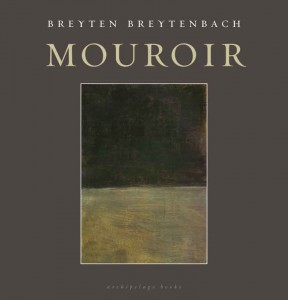Breyten Breytenbach: Writing as a Sense Organ

Heather Hartley: While you were in prison, you said, “writing becomes a sense organ.” How do you mean this?
Breyten Breytenbach: In prison particularly [this is the case], and I’m sure it’s probably the same if one were to find oneself in any situation of isolation. Imagine that you get lost in the high mountains or you’re sick and in hospital for a long period or that you’re going to a monastery. I think that if writing is your bent, it becomes a sense organ through which you experience or try to understand the world … I think it becomes an essential medium to access the world around you, your immediate environment and also the interaction between this, memories and imagination. It’s also a way of accessing your self.
I hadn’t been aware of the extent to which writing becomes an inevitability, becomes an actual necessity. It’s nearly as if something doesn’t really exist until I can shape it in writing or think it in writing and it’s in this way that I compare it to a sense organ. I think one becomes dependent on it in the same way as you look and listen to and interpret what you hear and what you see. In writing, which is obviously a quiet activity, [although] I’m not sure it’s a natural one, I think it does become a sense organ, yes. Probably a kind of aggregate of the others … but then perhaps none of the sense organs exist by themselves.
